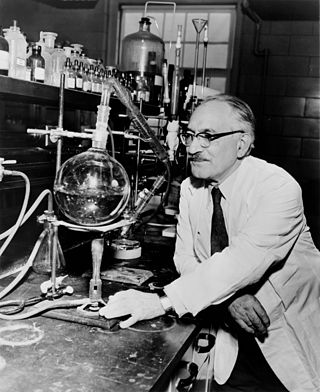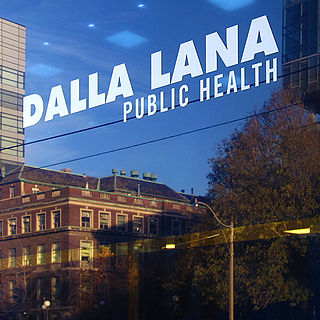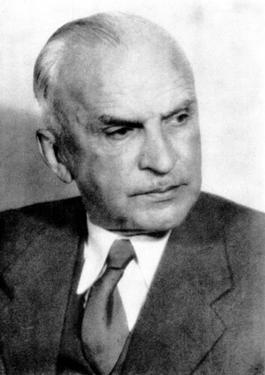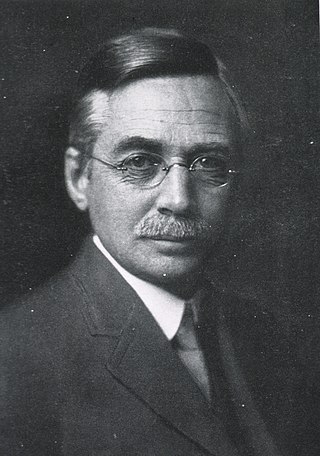
Alberto P. León (1909-2001) was the Secretary of Health of Mexico beginning in 1939. He is the 1991 holder of the Mexican National Prize on Medicine and Health.

Alberto P. León (1909-2001) was the Secretary of Health of Mexico beginning in 1939. He is the 1991 holder of the Mexican National Prize on Medicine and Health.
León was born in Irapuato, Mexico, on July 12, 1909, and died on August 4, 2001, in Mexico City.
He gained his BS degree at the Preparatory School of Aguascalientes in 1926, his MD at the National University of Mexico in 1933, and MPH degree at the Harvard School of Public Health in 1936. At Harvard he studied under Hans Zinsser. He was Professor of Bacteriology and Immunology at the School of Medicine, National University of México from 1946 to 1950 and since 1946 Professor of Clinics for Infections Diseases.
He worked for the Department of Public Health from 1930 to 1934, doing his residency with the medical emergency services of the City of Mexico from 1932 to 1933. He was a consulting physician of the Department of Public Welfare of Mexico in 1933 and chief of internal medicine of the Spanish Hospital of Mexico City from 1933 to 1934. For his studies at the Harvard School of Public Health from 1934 to 1936, León received a Fellowship from the Rockefeller Foundation. In 1936, he became technical supervisor of the Department of Public Health in Mexico. He founded and directed the Office of Epidemiology in the same department from 1937 to 1940. From 1938 to 1988 he worked as a professor at the Institute for Tropical Diseases in Mexico (Instituto de Enfermedades Tropicales).
In 1939, León was appointed General Secretary of Health in the Mexican Secretariat of Health.
He founded and directed the Institute of the BCG of Mexico from 1948 to 1965.
In addition to his previously mentioned academic posts, he was Professor of Immunology, School of Biological Sciences, National Polytechnic Institute of Mexico, 1945 to 1950; Professor of Epidemiology, Immunology and Bacteriology, School of Public Health, 1938 to 1950; Professor, School of Medicine, University of California at Los Angeles, 1950. Leon was a leading expert on public health issues in Mexico, especially the vaccination campaign against tuberculosis. [1]
León was fellow of six national societies, President of three of them, and a member of seven international societies. From 1946 to 1949 he was President of the Mexican Society for Geography and Statistics (Sociedad Mexicana de Geografía y Estadística), the first scientific society founded 1833 in America.
In 1948 he was Chief of the Mexican Delegation of the World Health Assembly in Geneva, during which his initiative and efforts helped to establish the Division of Environmental Sanitation and the Panel on Brucellosis.
He received the first award of Physiology of the Mexican Society of Internal Medicine and the Gold Medal and Diploma for Public Health Merit of the Department of Public Health and Public Assistance. Silver Medal, Gold Medal and Diplomas for 25, 30 and 35 years of Professorship of the School of Medicine National University of Mexico, have been awarded to him and other honours include: Gold Medal and Diploma for Health Merit, Mexican Public Health Association; Diplom for the Foundation and Distinguished Services, National Committee Against Tuberculosis, Mexico.
Honorary membership Inter American Statistical Institute. For 40 years León was member and vice president of the American Public Health Association.
He published 1992 his book 50 Years Of Investigation In Mexico Marquéz López Editorial Inc.
In 1979 Leon started to conduct a research on cancer treatment. Unfortunately because of his old age he could not publish a scientific publication of the successful therapies cases applied. Nevertheless, he was able to cure some cases of cancer sick patients in his practice, and most of those where hopeless cases.
He married María del Refugio Lomelí Sánchez in 1934 in Mexico City. They raised 9 children.

Selman Abraham Waksman was a Jewish American inventor, Nobel Prize laureate, biochemist and microbiologist whose research into the decomposition of organisms that live in soil enabled the discovery of streptomycin and several other antibiotics. A professor of biochemistry and microbiology at Rutgers University for four decades, he discovered several antibiotics, and he introduced procedures that have led to the development of many others. The proceeds earned from the licensing of his patents funded a foundation for microbiological research, which established the Waksman Institute of Microbiology located at the Rutgers University Busch Campus in Piscataway, New Jersey (USA). In 1952, he was awarded the Nobel Prize in Physiology or Medicine for "ingenious, systematic, and successful studies of the soil microbes that led to the discovery of streptomycin." Waksman and his foundation later were sued by Albert Schatz, one of his Ph.D. students and the discoverer of streptomycin, for minimizing Schatz's role in the discovery.

The Johns Hopkins Bloomberg School of Public Health is the public health graduate school of Johns Hopkins University, a private research university primarily based in Baltimore, Maryland.

Stanley "Stan" Falkow was an American microbiologist and a professor of microbiology at Georgetown University, University of Washington, and Stanford University School of Medicine. Falkow is known as the father of the field of molecular microbial pathogenesis. He formulated molecular Koch's postulates, which have guided the study of the microbial determinants of infectious diseases since the late 1980s. Falkow spent over 50 years uncovering molecular mechanisms of how bacteria cause disease and how to disarm them. Falkow also was one of the first scientists to investigate antimicrobial resistance, and presented his research extensively to scientific, government, and lay audiences explaining the spread of resistance from one organism to another, now known as horizontal gene transfer, and the implications of this phenomenon on our ability to combat infections in the future.

William Henry Welch was an American physician, pathologist, bacteriologist, and medical-school administrator. He was one of the "Big Four" founding professors at the Johns Hopkins Hospital. He was the first dean of the Johns Hopkins School of Medicine and was also the founder of the Johns Hopkins School of Hygiene and Public Health, the first school of public health in the country. Welch was more known for his cogent summations of current scientific work, than his own scientific research. The Johns Hopkins medical school library is also named after Welch. In his lifetime, he was called the "Dean of American Medicine" and received various awards and honors throughout his lifetime and posthumously.
Professor John Grange died 10 October 2016 was an English immunologist, epidemiologist, researcher, and academic, and was one of Europe's leading tuberculosis specialists.
William Augustus Hinton was an American bacteriologist, pathologist and educator. He was the first Black professor in the history of Harvard University. A pioneer in the field of public health, Hinton developed a test for syphilis which, because of its accuracy, was used by the United States Public Health Service. In 1975, the Massachusetts legislature made what had become known as the "Hinton Laboratory" in the scientific community official, passing a bill to rename the state laboratory the "Dr. William A. Hinton Laboratory." In 2019, Hinton's portrait was placed in Harvard Medical School's Waterhouse Room, a room previously dominated by the portraits of former Harvard Medical School Deans, all of whom were white.

K. Srinath Reddy is an Indian physician and the Former President of the Public Health Foundation of India and formerly headed the Department of Cardiology at All India Institute of Medical Sciences (AIIMS).

Leona Baumgartner was an American physician. She was the first woman to serve as Commissioner of New York City's Department of Health (1954–1962). She was a strong advocate of health education and a pioneer in promoting health services among New York's immigrant and poverty-stricken population.

Dalla Lana School of Public Health is the school of public health at the University of Toronto. It was founded in 1927, and was home for 50 years to Connaught Laboratories, a manufacturer of vaccines, insulin, and many other pharmaceutical products. Having grown to be the largest cluster of public health scholars in Canada, the school was revitalized in 2008 with the support of a major gift from the Dalla Lana family.

Hans Otto Friedrich Schlossberger was a German physician, who was known for his research in immunology, medical microbiology, epidemiology and antimicrobial chemotherapy, especially on syphilis, typhus, gas gangrene, diphtheria, erysipeloid of Rosenbach, tuberculosis, malaria and leptospirosis. He was one of the leading immunologists and bacteriologists of Germany during his lifetime, and was a student and collaborator of the Nobel laureates Paul Ehrlich and Emil von Behring, two of the principal founders of the field of immunology.

Dr. Moyses Szklo is a Brazilian epidemiologist and physician scientist. He is currently University Distinguished Service Professor of Epidemiology and Medicine at the Johns Hopkins University, Editor-in-chief Emeritus of the American Journal of Epidemiology, and director of the Johns Hopkins Summer Institute of Epidemiology and Biostatistics. Szklo has published over 300 articles in peer-reviewed journals as well as a major textbook of epidemiology. He has led several major epidemiologic societies and studies and has been lecturing and leading courses all over the world, including Spain, Italy, Israel, Brazil, and Mexico.
Barry R. Bloom is Joan L. and Julius H. Jacobson Professor of Public Health, Emeritus in the Department of Immunology and Infectious Diseases and Department of Global Health and Population in the Harvard T.H. Chan School of Public Health, where he served as dean of the faculty from 1998 through December 31, 2008.
Jonathan Michael Samet is an American pulmonary physician and epidemiologist who served as dean of the Colorado School of Public Health. He is also the chair of the Clean Air Scientific Advisory Committee of the Environmental Protection Agency, as well as the Tobacco Products Scientific Advisory Committee of the Food and Drug Administration.
Leon Gordis was an American epidemiologist, professor and author, whose textbook Epidemiology provided a foundation for the understanding of epidemiologic principles and clinical applications.
Robert Cruickshank was a Scottish bacteriologist. He did much early work on cancer research and aerobiology, including the airborne spread of streptococcus. He was an expert in the field of epidemiology.

Marius Nasta was a Romanian physician and scientist renowned for his work in the field of tuberculosis. He was a titular member of the Romanian Academy and President of the Union of Societies of Medical Sciences.

Edgar Ashworth Underwood was a Scottish physician who began his career in public health and later became director of the Wellcome Institute for the History of Medicine.
Esteban González Burchard is an American physician-scientist, a UCSF Distinguished, Endowed, Tenured Professor of Pharmacy and Medicine, Pulmonary & Critical Care Physician-Scientist trained in Genetics, Immunology, Epidemiology, Pharmacogenetics, and clinical phase 1 trials. A specialist in gene-environment interactions in asthma and health disparities.

Ludvig Hektoen was an American pathologist known for his work in the fields of pathology, microbiology and immunology. Hektoen was appointed to the National Academy of Sciences in 1918, and served as president of many professional societies, including the American Association of Immunologists in 1927 and the American Society for Microbiology in 1929. He was the founding editor of the Archives of Pathology and Laboratory Medicine in 1926 and edited several other medical journals. He was knighted to the Order of St. Olav in 1929, and in 1933, he became professor emeritus of pathology at the University of Chicago. The Hektoen Institute for Medical Research—formerly the John McCormick Institute of Infectious Diseases—now bears his name.